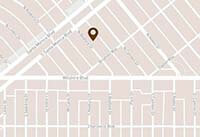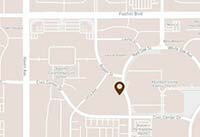The gastric pacemaker is a bariatric procedure that aims to curb weight gain by controlling how full and satiated you feel. A bariatric procedure is one that assists in weight loss. People who find it difficult to lose weight, or those who face the risk of obesity and high blood pressure, can opt to have this device inserted to control how they respond to the stimuli of food.
A gastric pacemaker is a device that is inserted into the body through a minimally invasive procedure. The functioning of the device is ensured through the use of an external controller.
Through a process known as gastric internal stimulation, the gastric pacemaker acts as a liaison between the stomach and the brain by controlling nerve signals that operate between them. Patients who find it difficult to lose weight using traditional means find their gastric pacemakers to be a great help.
Are You a Good Candidate for a Gastric Pacemaker?
In order to be considered as a patient for this procedure, your Body Mass Index (BMI) must fall between 35 and 45. In addition to this, you must have at least one major disease, such as diabetes or high blood pressure, that is associated with obesity.
The best way to know whether you make a good candidate for the insertion of a gastric pacemaker is to talk to Dr. Davtyan during a consultation. He will let you know if you are a valid candidate, and if you are not, he can point you towards alternative surgeries.
What to Expect If You Opt for a Gastric Pacemaker
One of the many ways a doctor may deal with problems relating to the gastrointestinal tract is through gastric bypass surgery. However, the gastric pacemaker is an attractive alternative that more and more people are turning to these days.
There are three primary components within a gastric pacemaker:
• Lead System: Wires that are responsible for directing electrical impulses within the body to the vagus nerve
• Neuroregulator: The component responsible for sending messages to the vagus nerve, which deals with digestion and its processes
• Controller: The controller, like the name suggests, is not inserted into the body; rather, it is used by your medical practitioner alongside other caregivers to take care of and ensure the smooth functionality of the gastric pacemaker within the body
What Occurs During the Procedure
Before undergoing surgery to have a gastric pacemaker inserted, a general anesthetic will be administered to ensure that you are in a comfortable and pain-free unconscious state for the duration of surgery.
After this, Dr. Davtyan will make incisions into your skin. He will then insert the pacemaker into your body using a laparoscope, a tool with a camera that transmits images to a monitor. This tool allows the doctor to more accurately implant the pacemaker.
Once the pacemaker is in place, Dr. Davtyan will adjust and program the pacemaker according to your specific requirements. He will also explain to you how to charge the pacemaker and will give you all the information you need to acclimate to the change in your body.
Take Control of Your Weight-Loss Journey
Dr. David Davtyan, a skilled medical professional who is board-certified in Surgery and Bariatric Medicine, has years of experience helping people lose weight effectively. To meet with Dr. Davtyan and discuss getting a gastric pacemaker, contact our office and set up your consultation.






















